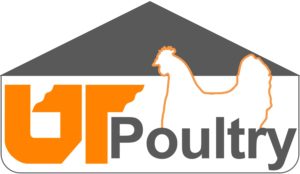Fall is not only harvesting season across the U.S. It is also avian influenza season. With the start of the fall waterfowl migration season, we have seen a steady uptick in the number of avian influenza cases in October 2023. Eight states have reported avian influenza cases so far in October after only a total of four cases throughout all of July-September 2023.
Please be mindful of biosecurity practices and take precautions to keep your flock safe. Biosecurity is based on three critical components:
- Isolation
- Traffic control
- Sanitation
Keep these in mind as you go about your daily routine. Remember that avian influenza must be put in the chicken house, it does not appear by magic. Unknowingly tracking the virus into the house is certainly a possibility and must be guarded against. Dedicate footwear that is only used in the chicken house or use disposable footwear in the chicken house or pen.
Watch for possible disease signs in your birds. If you are a commercial poultry producer, notify your field technician at the first indication of a disease issue. If you are a backyard flock keeper, notify your county agent, local veterinarian, Kord Diagnostic Lab in Nashville (615-837-5125), Tennessee State Veterinarian’s office (615-837-5120), or a poultry Extension specialist at Tennessee State University (615-963-5823) or The University of Tennessee (931-486-2129).
Possible disease signs include:
- Sneezing
- Coughing
- Swollen sinuses
- Nasal discharge
- Watery eyes
- Twisted neck
- Decreased feed and water intake
- Dehydration
- Decreased egg production
- Misshapen eggs
- Decreased fertility and hatchability
- Depression
- Huddling
- Lethargy
- Increased mortality
Please remain vigilant and immediately report and change in the health status of your flock. Know that we are here to assist you in any way possible with your flock.
